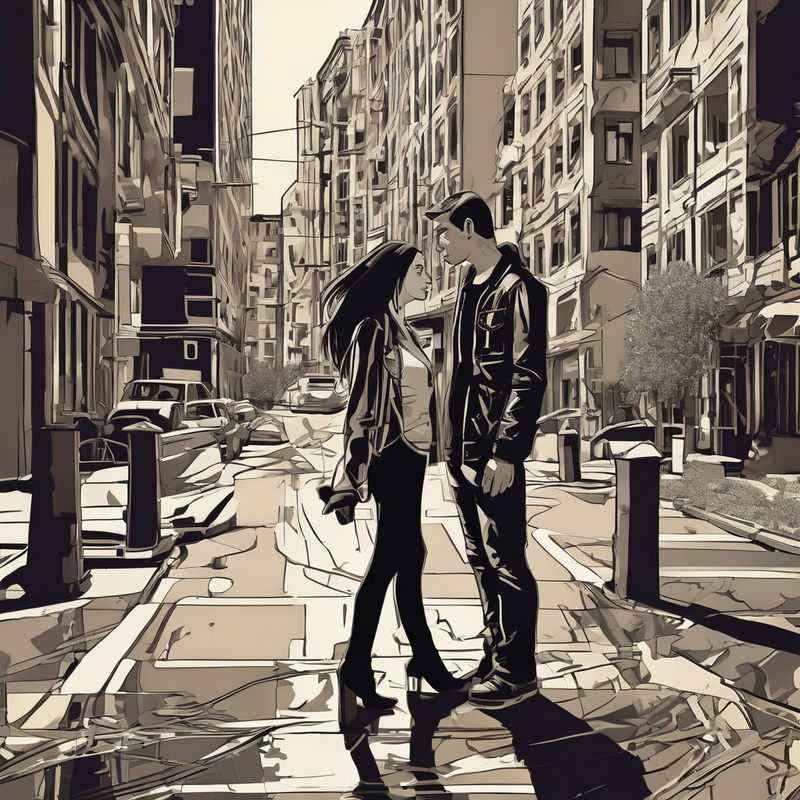Asking Eric: After partner’s death, man is consumed by guilt 💔
In the labyrinthine corridors of grief, one can find an unexpected visitor: guilt. It tiptoes behind the heavy veil of sorrow, sometimes more suffocating than the loss itself. For Eric, a 37-year-old accountant, the recent death of his partner has become a haunting melody of regrets and ‘what ifs,’ playing on a perpetual loop in his mind. How does one navigate the treacherous waters of guilt while searching for solace in the wake of such profound loss? 🔍
The Paradox of Grief
Grief is often portrayed as a linear path, one that leads toward acceptance. Yet, in reality, it’s more like an overgrown hedge maze—the more you try to navigate it, the more lost you may feel. Eric finds himself spiraling into guilt, haunted by memories of their last conversation, where they quarreled over something trivial, a matter that now feels so trivial it might as well have been a grain of sand on a beach of despair.
For many, including Eric, guilt can represent a relentless paradox, capturing the contrasting truths of love and loss—both actions that seemingly contradict each other. As he sorts through the remnants of their shared life, he grapples with thoughts like, “If only I had said this,” or “What if I had done that differently?” Each thought is like a wave crashing against the shore of his heart, pulling him under into deeper waters.
Understanding the Roots of Guilt
To fathom the intensity of Eric’s guilt is to explore the very nature of relationships shared with loved ones. They often walk the delicate tightrope between love and expectation. When that connection is severed, it’s as though the ground beneath one’s feet gives way, leaving behind an unbearable void. As Eric thinks of their dreams—traveling to Paris, living simply in the countryside—he cannot help but feel he has let them all down, an echoing sentiment reverberating in the silence of their unfulfilled aspirations.
This experience of guilt could almost be compared to standing on a frozen lake, the surface appearing solid, yet one wrong step reveals the frailty beneath. The emotional weight of Eric’s grief has imprisoned him in a life where the only conversation is with his own conscience.
The Irony of Life and Death
Here lies the subtle irony: while Eric hopes to honor his partner’s memory, his internal battle offers little in the way of reverence. Instead, it becomes a storm of regret. Love, one of the most celebrated virtues, now feels like a heavy chain. He recalls how they often joked that life was a series of decisions, some leading to joy and others to inevitable heartbreak, yet now he wonders if it was ever meant to be this way. Is it fair to think that one could prepare for the final act of love, which in essence seems only to rear its head once a loved one has departed? 🤔
In exploring his feelings, one might observe that guilt, rather than serving as a reminder of his love, instead pushes him further into isolation. The contrasts become stark: love that should inspire openness has morphed into a labyrinth of self-blame. How ironic, to find that his devotion could also be the very prison in which he feels ensnared.
Finding a Path Through the Guilt
In navigating this emotional minefield, Eric must seek a way to reconcile his feelings. Perhaps the first step is acknowledging that guilt often springs from the desire to have played a role in a different reality, one where all could have ended differently. Eric has begun reaching out—initially hesitant—finding solace in conversations with friends, where honesty seems to ease the suffocating grip of guilt. Each word shared acts as a soft breath in a smoke-filled room, clearing some of the heavy air hanging around him.
Moreover, professional help is another avenue worth considering. Whether through therapy, grief support groups, or simply journals filled with the visceral emotions he cannot quite articulate, these avenues serve as open channels for healing. Just as one plants seeds in the hope of a blooming garden, so too can Eric cultivate insights that will one day sprout into acceptance.
Life Beyond Guilt
As Eric continues his journey, the nebulous concept of forgiveness becomes a lighthouse, guiding him through the fog of his grief. Forgiveness is a powerful tool—not only for his partner’s memory but also for himself. To forgive is to acknowledge imperfection, for in love, as in life, the truth is no one is perfect. Sometimes the memory of that imperfection is the very essence of love itself—a love that, at its core, is immersed in understanding and compassion.
In learning to forgive, Eric discovers that living with gratitude can lead to healing. Reflecting on the moments they cherished together, transforming the guilt-laden narrative into a tapestry of gratitude, he might find freedom. Each heartfelt reflection is akin to sunlight breaking through storm clouds, illuminating the path ahead. And with each passing day, as time softly shapes the jagged outlines of his sorrow, guilt evolves from an insurmountable mountain to a mere whisper among the rustle of leaves.
Grief is never just a single emotion but rather a cascade of feelings, interwoven with guilt, love, anger, and unfulfilled desires. For Eric, the journey through guilt is long and winding, but with each step toward healing, he may ultimately discover a renewed sense of self, one that honors love’s legacy while bravely stepping into the future. 🌱











